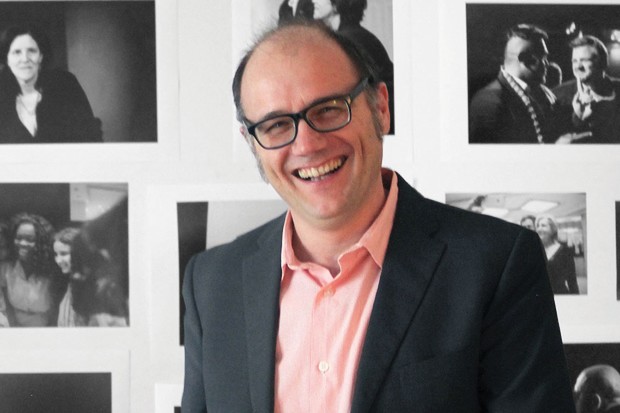Christophe Leparc • Director, Cinemed
"A young emerging cinema where the place of women directors is more and more important"
- We met up with Christophe Leparc, director of the Montpellier Mediterranean Film Festival (39th edition running from 20 to 28 October)

In chargeof Cinemed – Montpellier Mediterranean Film Festival – for the past three years, Christophe Leparc (also Secretary General of the Directors' Fortnight since 2008) talks about the 39th edition of the festival (read the news here), which kicks off today.
Cineuropa: Mediterranean cinema covers a very vast area. What's the editorial line of your competitive sections?
Christophe Leparc: There is no specifically researched theme or exhaustive means of representation. The Mediterranean includes 25 countries while we only have nine feature films in the fiction competition, eight in the documentary section and twenty in the short film section. It's more a matter of what we like. If we have two films that come from the same country that we like, we're not going to stop ourselves from taking them on! By the way, this year we have an Israeli film by Shady Srour and a Palestinian film by Annemarie Jacir in the fiction film competition section. The conclusion that can be drawn in relation to the films that have been chosen, even though we had no particular intention of going in this direction, is that six of the nine titles in the fiction feature competition section are debut films and four were made by women: we've leant more towards young emerging cinema, where the place of women directors is more and more important, quite organically. In terms of documentaries, we've been asked for years why we've not talked about Syria, as if there is some kind of immediate correlation between the news and what the festival presents. But we’re not a film-journalism festival, and filmmakers need time to develop a perspective that might differ somewhat from what we see on television.
What are some of the geographical production trends?
We’ve proposed a panorama section for the young Algerian cinema that has really begun to emerge this year, as we have seen with the likes of Until the Birds Return [+see also:
film review
trailer
interview: Karim Moussaoui
film profile] by Karim Moussaoui, who was also at Cannes. In more general terms, trends are leaning towards a desire for artistic expression through cinema, above all. What do filmmakers do when the production structures in their own country are not as well organised as elsewhere? They organise themselves via co-production which is now widespread. Algeria often pairs up with France, Tunisia for example has co-produced Vent du Nord by Walid Mattar with Belgium, which is in competition, and films such as Wajib by Annemarie Jacir (also in competition) have brought together the likes of Palestine, France, Germany, Colombia, Norway, Qatar and the United Arab Emirates! Filmmakers keep their identity, and talk about their country, but manage to interest as many people as possible and benefit from co-production agreements between the different countries.
What are the main objectives of the industry meetings (24 to 26 October)?
The industry meetings organised at the festival aim to facilitate the creation of content and its construction. For more than 25 years, development grants have been awarded to filmmakers with feature film projects at the treatment level. We have expanded this component over the past three years with our "from short to long" system, which allows the directors of short films that have been selected in competition at the festival to benefit from the presence of professionals in Montpellier, who they can pitch their feature film projects to, if they so desire. And we are broadening things even further this year by giving opportunities to the projects supported by the Occitanie region, allowing them to be presented to the professionals we bring to Montpellier, such as producers, distributors, institutions, technical industries, etc. – an entire film community that is interested in projects from the very beginning, projects which we hope they can assist with, thanks to the establishment of relationships and networking. We do not have the financial means that some people have, such as the Doha Film Institute in Dubai, or even Torino Film Lab, but we have our Mediterranean niche in terms of the development of projects, perhaps not in terms of post-production, or even the pitching of screenplays, but in terms of the birth of projects. And if there is one thing to insist upon, it’s the reliability of the "from short to long" system, which radiates throughout the festival: we discover young filmmakers as they emerge with their shorts films and we follow them.
(Translated from French)
Did you enjoy reading this article? Please subscribe to our newsletter to receive more stories like this directly in your inbox.
















